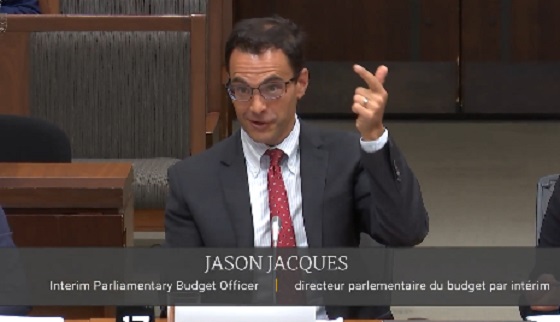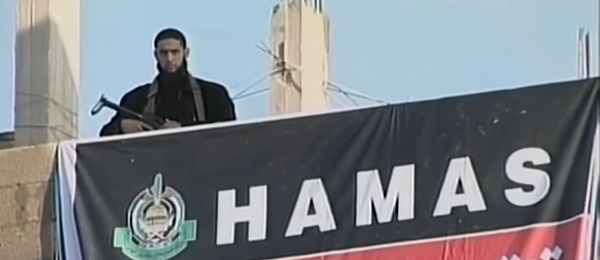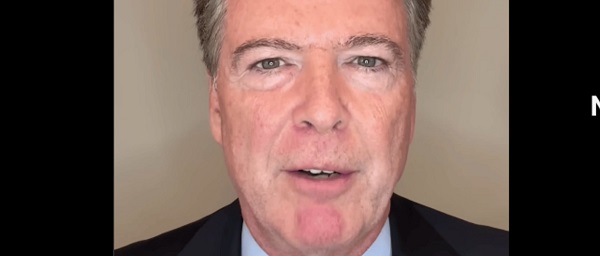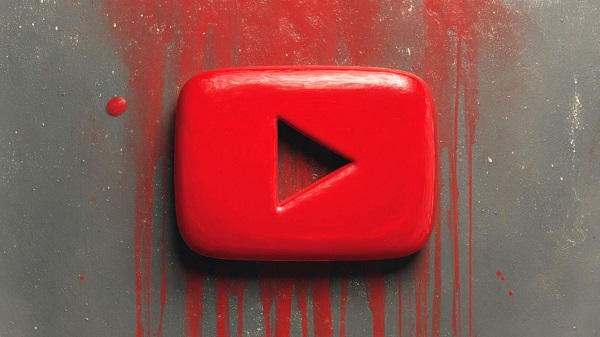Economy
US strategy to broker peace in Congo and Rwanda – backed by rare earth minerals deal

 MxM News
MxM News
Quick Hit:
Senior Trump advisor Massad Boulos says the U.S. is brokering a peace deal between the Democratic Republic of the Congo (DRC) and Rwanda that will be paired with “Ukraine-style” mineral agreements to stabilize the war-torn region.
Key Details:
-
The U.S. wants Congo and Rwanda to sign a peace treaty and, on the same day, finalize critical mineral supply deals with Washington. Boulos told Reuters that both deals are expected within two months.
-
Rwanda’s side of the treaty involves halting support for M23 insurgents, while the DRC has pledged to address Rwanda’s concerns about the Hutu-dominated FDLR militant group.
-
DRC President Tshisekedi has floated the idea of giving the U.S. exclusive access to Congolese minerals in exchange for help against M23. “Our partnership would provide the U.S. with a strategic advantage,” he wrote in a letter to President Trump.
Diving Deeper:
According to a Thursday report from Reuters, President Donald Trump’s administration is accelerating efforts to finalize a dual-track strategy in central Africa—pushing for a peace agreement between the Democratic Republic of the Congo and Rwanda, while simultaneously brokering “Ukraine-style” mineral deals with both nations.
Massad Boulos, Trump’s senior adviser on Africa, told Reuters that the administration expects the mineral agreement with Congo to be signed on the same day as the peace treaty, followed shortly by a separate deal with Rwanda. “The [agreement] with the DRC is at a much bigger scale, because it’s a much bigger country and it has much more resources,” Boulos explained, while noting Rwanda’s potential in refining and trading minerals is also significant.
The DRC and Rwanda have set a tight timetable, agreeing to exchange draft treaty proposals on May 2nd and finalize the accord by mid-May. Secretary of State Marco Rubio is scheduled to preside over the next round of negotiations in Washington.
Rwanda’s cooperation hinges on its withdrawal of support for M23 rebels, who have taken over key territories in eastern Congo. These insurgents have even paraded through captured towns alongside Rwandan troops, prompting international condemnation. In return, Congo has committed to addressing Rwanda’s longstanding concern over the presence of the FDLR—a militant group composed largely of Hutu fighters accused of plotting to overthrow Rwanda’s Tutsi-led government. The FDLR has been active in the region for years and remains a major point of contention.
The instability in eastern Congo—home to over a hundred armed groups—has prevented investors from tapping into the country’s vast mineral wealth. The DRC holds an estimated $24 trillion in untapped resources, including cobalt, copper, lithium, and tantalum, all essential for advanced electronics, renewable energy systems, and defense applications. Boulos emphasized that no deal will go forward unless the region is pacified: “Investors want security before they invest billions.”
Reports suggest M23 has seized control of major mining operations, funneling stolen minerals into Rwanda’s supply chain. Though the UN’s peacekeeping mission, MONUSCO, was designed to stabilize the region, it has been ineffective during this latest wave of violence. President Tshisekedi asked the mission to withdraw last year, and several countries—including South Africa, Malawi, and Tanzania—are now pulling their peacekeepers after M23 captured the regional capital of Goma in January.
Red Cross teams began evacuating trapped Congolese soldiers and their families from rebel-held areas on Wednesday. At least 17 UN peacekeepers have been killed so far this year.
In a March letter to President Trump, President Tshisekedi made his case for a strategic partnership, offering exclusive U.S. access to Congo’s mineral wealth in exchange for American support against the insurgency. “Your election has ushered in the golden age for America,” he wrote, describing the proposed deal as a “strategic advantage” for the United States.
Boulos, who has longstanding business ties in Africa, quickly visited the DRC following the letter and began working to finalize the terms of the proposed agreement.
Business
“If you don’t change, this is dying.” PBO warns Carney’s massive deficits are an extinction level threat

“STUPEFYING, SHOCKING . . . if the [Carney Liberals] don’t change… THIS IS DONE.”
In all our years serving as Canada’s pioneering conservative advocacy organization, we’ve never seen a warning this dire from a Parliamentary Budget Officer.
Interim Budget Officer Jason Jacques isn’t just sounding the alarm, he’s potentially putting his position in the public service on the line to communicate this dire threat.
"STUPEFYING, SHOCKING . . . if the [Carney Liberals] don't change… this is done." 🚨🇨🇦
The government's true deficit is $68.5 billion, 62% HIGHER than predicted, reports Interim Budget Officer Jason Jacques.
He's sounding the alarm as loud as he can. pic.twitter.com/42u1sXDm2c
— National Citizens Coalition (@NatCitizens) September 26, 2025
This is a moment of incredible concern. The Liberal government’s true deficit is believed to be 62% HIGHER than previously predicted. That’s not “investment,” as the Liberals and their press have so shamelessly attempted to rebrand debt and YOUR tax dollars.
“It’s a really serious fiscal outlook.
“And we don’t lightly use the word unsustainable, Right?
“Unsustainable means you don’t have the option of saying, maybe I’ll wait a couple of years, I’ll see how things go.
“…And I think, as anyone who’s managed a household budget knows, if you sit down at the end of the month and you don’t have enough money to pay your bills, and it happens month after month after month, you know that something’s going to break.”
Mark Carney is being given failing report cards for a reason. This is beyond unsustainable, and while he can hide from harsh domestic realities overseas on the global stage, Canadians and their pocketbooks can’t.

This moment is urgent. On the economy, trade, domestic issues like immigration and crime and chaos, foreign policy, governance, and major projects, the Liberals are deserving of nothing but an F.
Some fell for the promise of better. So far, they’ve been fooled.
MILLIONS need to know the truth about this Liberal-made financial disaster. Help us reach them. Help us turn the polls, force change, and hold these economic arsonists to account.
If we do nothing, this gets worse. If this gets worse… “THIS IS DONE.”
Thank you for joining us in this dire moment for urgency and action!
Sincerely,
Peter Coleman
President
National Citizens Coalition
Alexander Brown
Director
Business
PBO report projects soaring deficit and debt interest charges

The Canadian Taxpayers Federation is calling on Prime Minister Mark Carney to cut spending following today’s Parliamentary Budget Officer report forecasting the deficit to “increase sharply.”
“The PBO report should be a five-alarm siren to end the government’s debt-fueled spending spree,” said Franco Terrazzano, CTF Federal Director. “Carney must change course and cut spending because taxpayers can’t afford to pay more than $1 billion every week to cover the government’s debt interest charges.”
The PBO’s Economic and Fiscal Outlook projects this year’s “deficit to increase sharply to $68.5 billion.”
Carney’s annual borrowing will add about $255 billion to the debt over four years, according to today’s PBO report. For comparison, former prime minister Justin Trudeau planned on increasing the debt by $131 billion over those years, according to the most recent Fall Economic Statement.
Debt interest charges will cost taxpayers $55.3 billion this year, according to the PBO. That means the federal government will waste more money paying interest on the debt than it sends to the provinces in health-care transfers ($54.7 billion). Debt interest charges will cost taxpayers $82.4 billion in 2030.
“The federal debt-to-GDP ratio is projected to increase from 41.7 per cent in 2024-25, rising above 43 per cent over the medium term,” according to the PBO.
The Carney government’s spending is projected to increase by billions of dollars every year, according to the PBO.
“Carney sold Canadians on the idea he wasn’t like Trudeau and when it comes to the debt here’s the truth: Carney plans to borrow billions of dollars more than Trudeau,” Terrazzano said. “After a decade of out-of-control spending, Carney must make government more affordable and cut spending.”
The Carney government will release its first budget on Nov. 4.
-

 armed forces23 hours ago
armed forces23 hours agoSecretive Lockheed Martin Skunk Works reveals latest high-tech military drone
-

 International22 hours ago
International22 hours agoEverything has changed. Again.
-

 Business1 day ago
Business1 day agoGun Buyback Program creating criminals out of law abiding citizens and directing police away from actual crime
-

 Daily Caller2 days ago
Daily Caller2 days ago‘Let’s Have A Trial’: Comey Responds To Indictment
-

 Business2 days ago
Business2 days agoCritics Accuse YouTube of Dragging Out Return Process for Banned Channels
-

 Opinion1 day ago
Opinion1 day agoThe City of Red Deer’s financial mess – KPMG report outlines failure of council to control spending
-

 Business21 hours ago
Business21 hours ago“If you don’t change, this is dying.” PBO warns Carney’s massive deficits are an extinction level threat
-

 Energy2 days ago
Energy2 days agoHere’s a list of ways the Carney government can unshackle Canada’s energy sector








